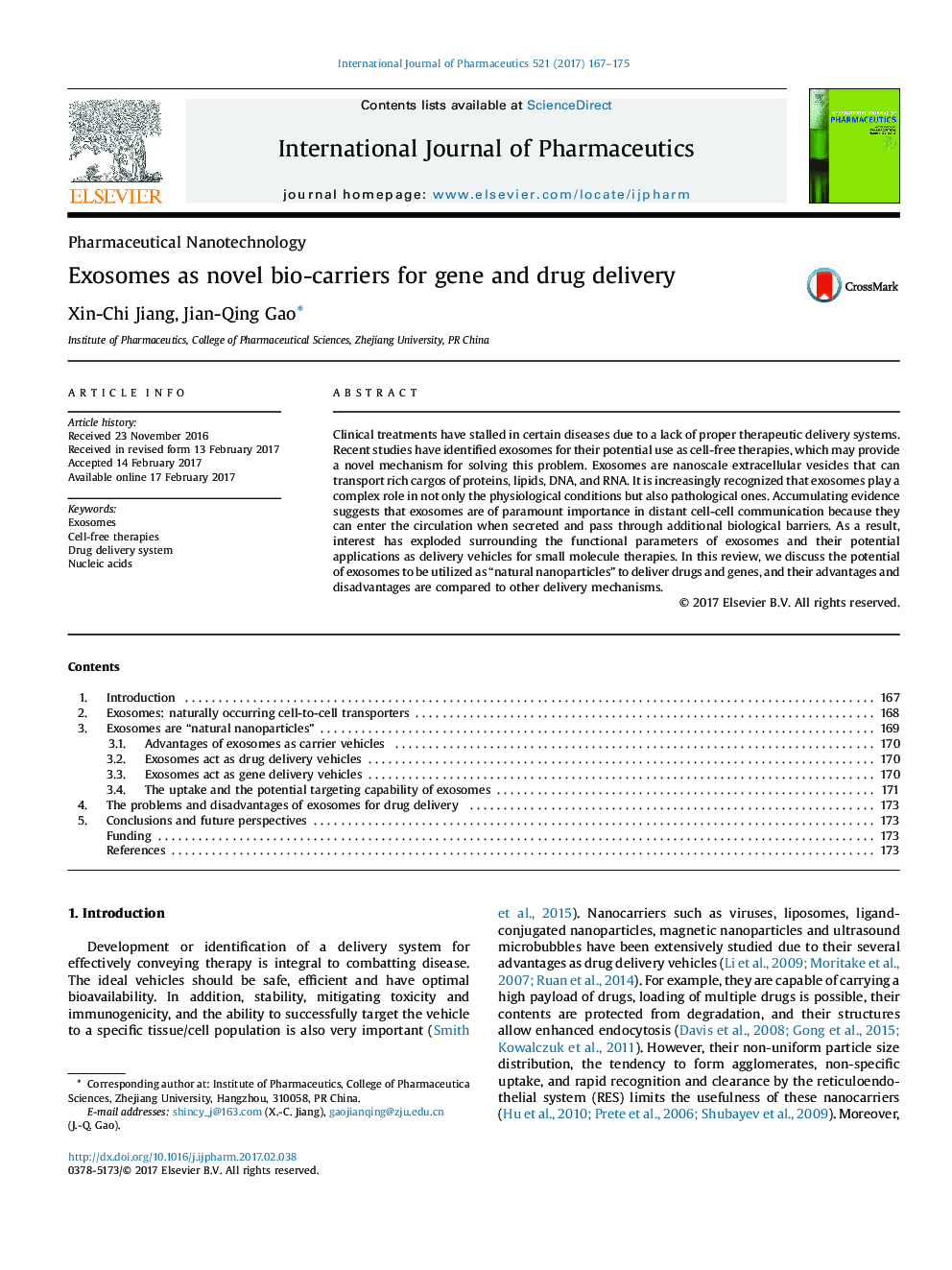| Article ID | Journal | Published Year | Pages | File Type |
|---|---|---|---|---|
| 5550607 | International Journal of Pharmaceutics | 2017 | 9 Pages |
Clinical treatments have stalled in certain diseases due to a lack of proper therapeutic delivery systems. Recent studies have identified exosomes for their potential use as cell-free therapies, which may provide a novel mechanism for solving this problem. Exosomes are nanoscale extracellular vesicles that can transport rich cargos of proteins, lipids, DNA, and RNA. It is increasingly recognized that exosomes play a complex role in not only the physiological conditions but also pathological ones. Accumulating evidence suggests that exosomes are of paramount importance in distant cell-cell communication because they can enter the circulation when secreted and pass through additional biological barriers. As a result, interest has exploded surrounding the functional parameters of exosomes and their potential applications as delivery vehicles for small molecule therapies. In this review, we discuss the potential of exosomes to be utilized as “natural nanoparticles” to deliver drugs and genes, and their advantages and disadvantages are compared to other delivery mechanisms.
Graphical abstractDownload high-res image (141KB)Download full-size image
